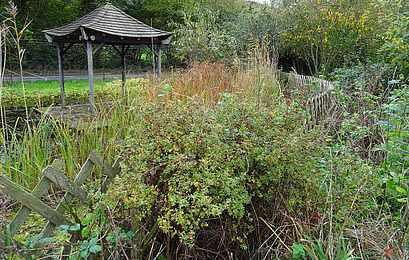What happens when you let teams just happen?

Gardens don’t ‘just happen’. What happens when you let teams just happen?
Letting a garden ‘just happen’ will most likely change it from a vibrant space of beauty, greenery, and relaxation into a dry, weedy wasteland. The weather has taken its toll. So has the lack of fertilizer—and don’t forget the pests which come in all shapes and sizes. Your team is like a garden. It, too, needs to be well-cared-for and carefully cultivated if you want it to blossom.
What happens when you let teams just happen?
Here are our Managing Director Stu Robertson’s top three tips for tending to your team.
Protect your team from the weather
The climate of business can be just as changeable as the weather outside. Sometimes it’s all as right as rain. Other times there are dry spells or calms before the storm.
If you know your team is about to hit rough weather, take some time to prepare them for the upcoming challenges. Teams that are more sheltered from the highs and lows of business tend to recoup their performances more quickly.
Here are a few useful techniques:
- Clarifying team objectives means your employees can keep their targets in clear sight. Reviewing strategies gives team members the sense that they have the equipment to cope with whatever the weather.
- Strengthening lines of communication reassures your people that no matter what the elements throw at them, they have places they can go for support and advice.
Fertilize your team’s ‘soil’
Teams, like gardens, need nutrients. New teams are usually full of ‘nutrients’ such as energy, motivation, cooperation, and goodwill. The proof is in the high level of successful output that these teams produce. Yet, this output requires resources (the nutrients) that are used to sustain the team’s day-to-day interactions—especially the challenging ones. As the time goes on, this nourishment gets used up.
Teams whose nourishment is kept at a high level tend to perform well continuously. Good team ‘fertilizers’ include: team building activities to remind employees of each team member’s strengths and the fact that “the whole is indeed more than the sum of its parts”; supporting diversity of thought to reinforce an open, accepting communication policy so employees can speak freely; and making space for team members’ personal needs to respect each employee as an individual.
Reduce the risk of pests
How many garden pests can you name? Did you think of centipedes, fruit flies, passion vine hoppers, aphids, wireworms, or paper wasps (just to name a few)? While these are definitely high on the ‘wanted’ list, these pests are just the ones you can SEE.
What about pests such as blight, viral diseases, and powdery mildew? These annoyances are sneaky—usually, we only know about them only AFTER the damage is done.
The strongest tactic to keeping your team ‘pest-free’ is creating an environment where such annoyances can’t get a foothold. Unite your teams with clear, common goals. Build a pest-resistance barrier by nourishing a teamwork spirit in which members can be counted on to do their parts and have each others’ backs. Keep lines of communication positive and flowing so that pests can’t find any resting places. Make team culture a conscious focus rather than an unconscious afterthought.
If pests appear, take steps towards positive neutralisation. Through seminars, workshops, and one-on-one conversations, problematic team members can explore their current behaviors and be guided to develop more fitting ones which meet the expected standards of the team and culture within the organisation. Collaborative, group, goal-setting, and conduct-setting sessions are very helpful—the ownership aspect encourages greater alignment and awareness within the team.
A third strategy is strengthening your team’s health for future growth. As in the garden, healthier teams are more pest-resistant. Team building activities promote team health—yes, it’s a proven fact.
Maintain your team and your organisational culture to flourish
Maintaining a thriving garden is almost a 24/7 proposition. The same can be said for maintaining a hard-working, productive, happy team. The good news is that teams usually respond very well to nurturing, with short turnaround times to regain their previous energetic, motivated and fruitful selves if the have previously been exposed to the elements.
Team Up Events specialises in developing team culture and improving employee engagement by positively contributing to the growth and prosperity of New Zealand workplace businesses through the delivery of world-class Team Building experiences. For more information contact Team Up Events today.